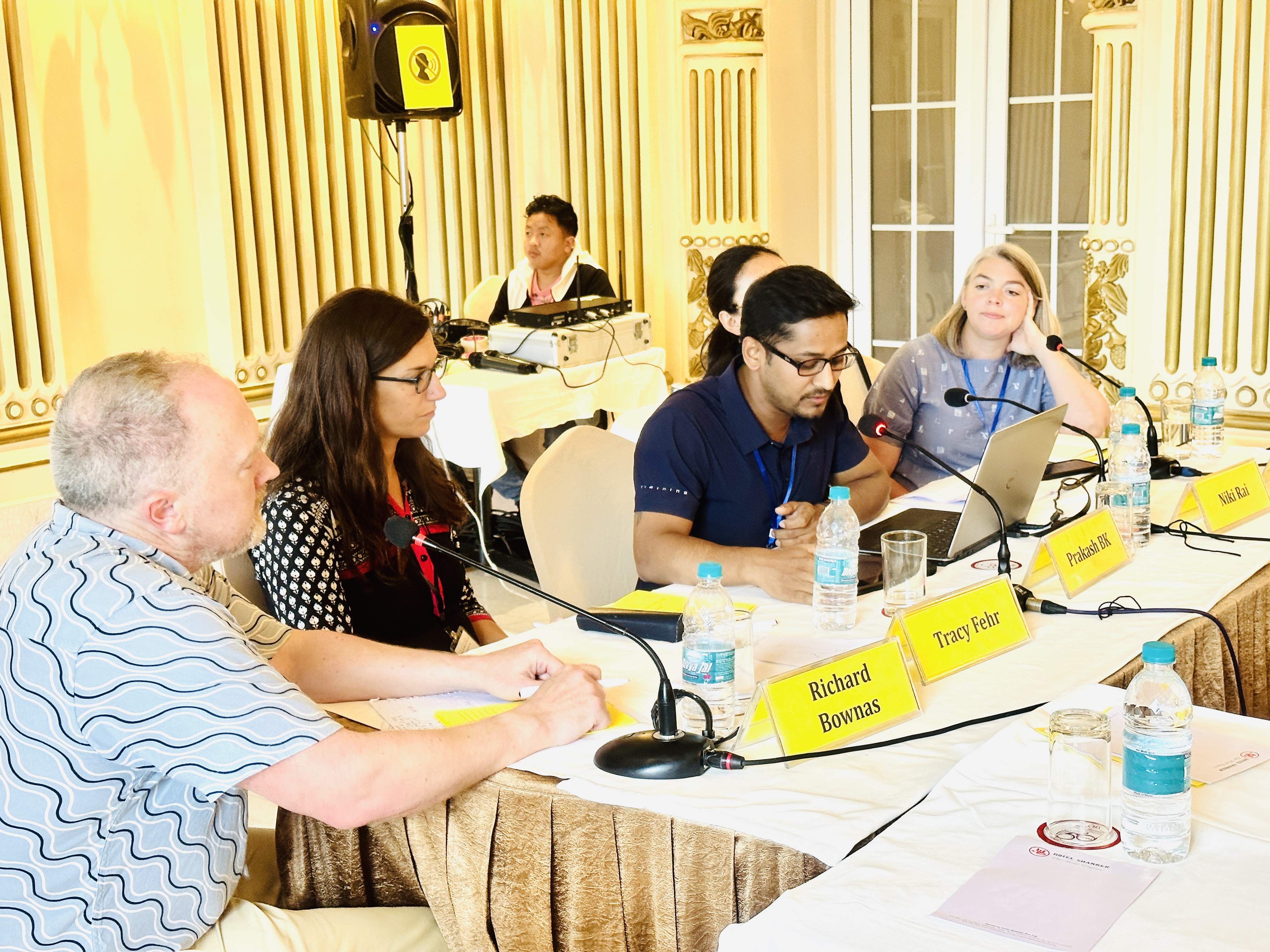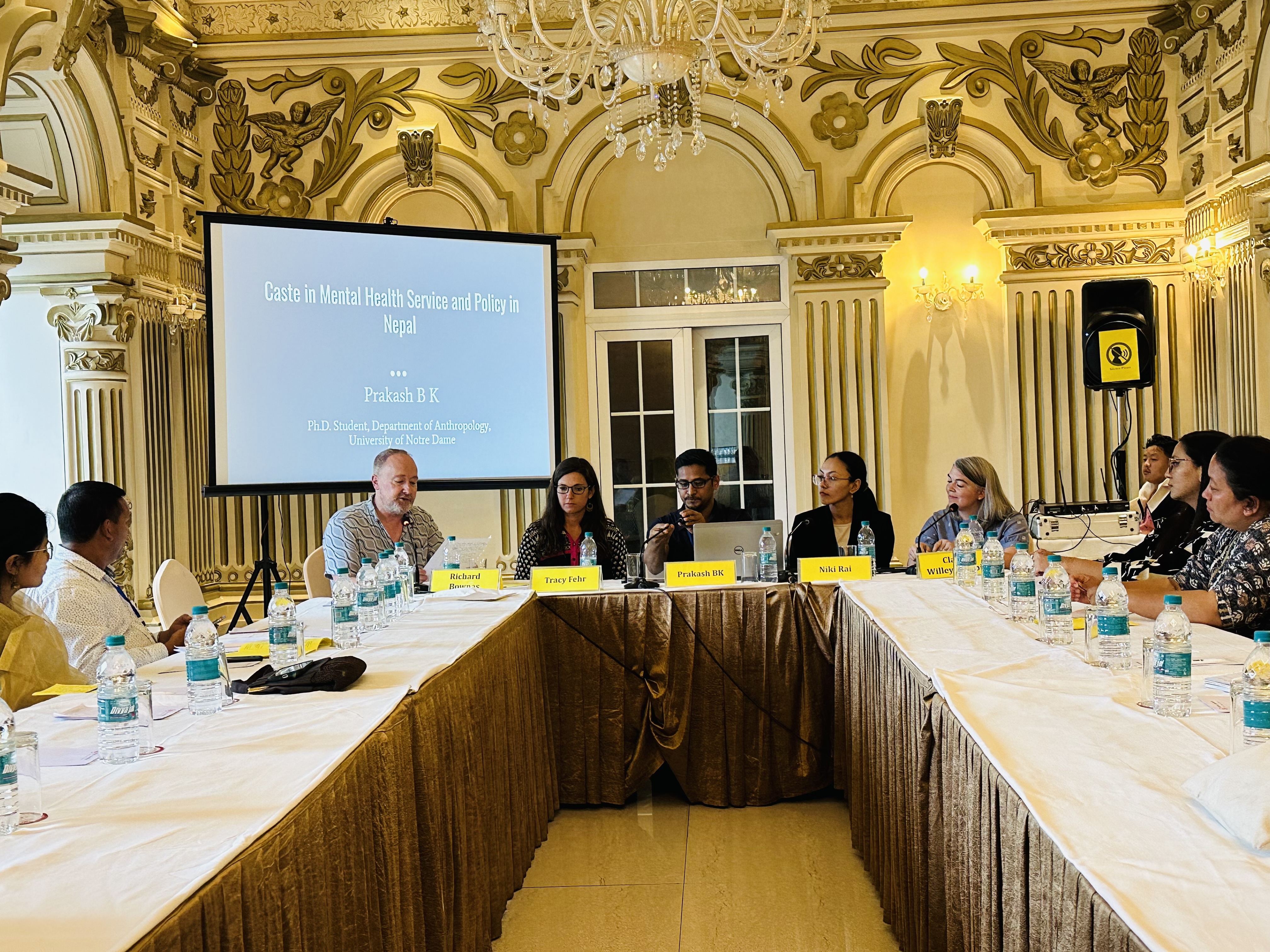Annual Kathmandu Conference on Nepal & The Himalayas; Kathmandu, Nepal
Kellogg Institute Conference Travel Grants
Conference: Annual Kathmandu Conference on Nepal & The Himalayas, in Kathmandu, Nepal
July 26 – July 28, 2023. T
Presentation: Caste in Nepal's Mental Health Policies and Education
Report:


I attended the Annual Kathmandu Conference on Nepal & the Himalayas, held in Kathmandu, Nepal, from 26-28 July 2023. The conference, organized by Social Science Baha, offered me to present a paper and provided me an opportunity to learn about contemporary issues in the Himalayan regions. I am grateful to the Kellogg Institute for International Studies for providing the financial support that made it possible for me to attend the conference, which took place over 7617 miles away from South Bend. This report highlights the benefits I gained from attending the conference and briefly summarizes my presentation.
At the conference, I attended a pre-conference symposium and actively participated in the three-day-long conference. On 26-28 July, I attended different panels such as “Trading on the transborder livelihoods,” “Literature as aspirations and representation,” “Reimagining marginalization,” “Whither education in Nepal,” “Identity and community formation through discourse,” “Examining identity in Nepali politics and society,” and “Displacement and perseverance.” The papers presented in these panels provided me with multidisciplinary approaches to identifying and understanding the problems of Nepalese society.
I presented a paper titled “Caste in Mental Health Service and Policy in Nepal.” My paper presentation was divided into four parts. Firstly, I shared my experience of caste-based discrimination, highlighting the connection between caste and mental health. Secondly, I presented the psychological consequences of caste based on the work of psychiatrist Franz Fanon. Thirdly, I gave a case study on a mental health intervention delivered by the NGO where I worked for two and half years to show how Dalits’ mental health problem is Westernized by mental health professionals and problematized by high caste people. Lastly, I demonstrated Nepal's government perspective on caste-based on my mental health policy reviews, revealing the potential risks to achieving the goal of "health for all." In conclusion, I urged stakeholders to recognize caste as contributing to Dalit mental ill health. I received comments from participants that my study can be a basis for future work in the field of cultural psychiatry in South Asia.
In sum, the Annual Kathmandu Conference on Nepal & the Himalayas provided a valuable opportunity to connect with established academics in the South Asian region. It also allowed me to represent the work of Dalit social scientists in Nepal. I believe this experience will be a significant asset in my future academic endeavors.






